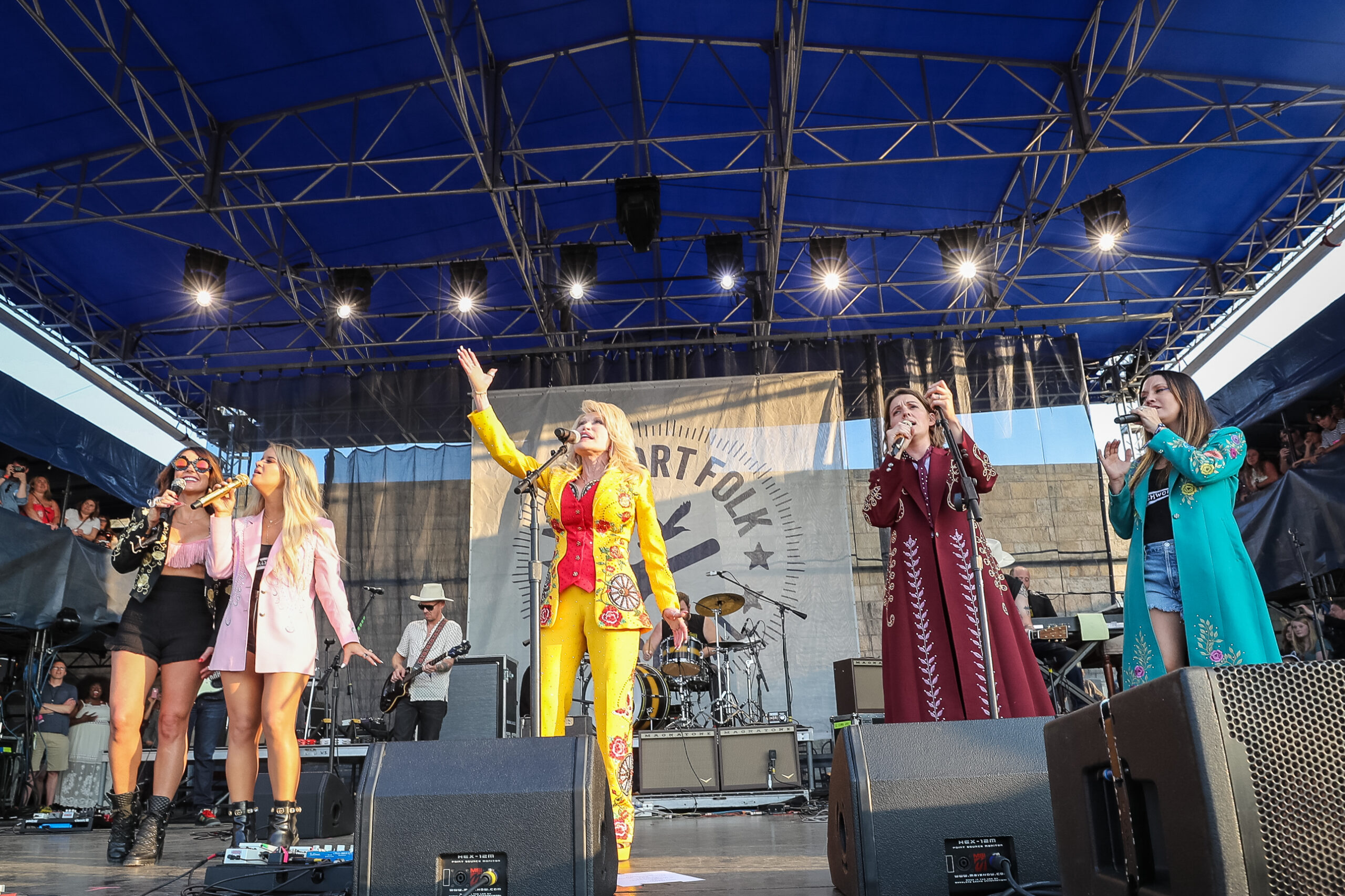
(Editor’s note: SPIN contributor Marissa R. Moss’s book, Her Country: How the Women of Country Music Became the Success They Were Never Supposed, is out today. Moss interviewed 70 sources for it, which traces how difficult it is to win when there are so many obstacles to clear. In this exclusive excerpt from Her Country, she outlines how Brandi Carlile engineered yet another historic moment in Newport Folk Festival history by putting together the first-ever female-only set in 2019.)
It was a fall of both empty gestures and important strides: the CMA Awards would announce in August that Dolly Parton and Reba McEntire would be taking over hosting duties from Brad Paisley to join Carrie Underwood in “celebrating women” when the show aired in November (though plenty dismissed this as lip service from an organization that has otherwise done next to nothing to further gender equality), while Carrie would simultaneously lose Entertainer of the Year to Garth Brooks at a show she was hosting. Appropriately, Jennifer Nettles showed up in a Christian Siriano pantsuit and cape with the words “Play our f*@#in records please and thank you” written on the inside. Lil Nas X and “Old Town Road” would make delightful waves, only to be rejected from the Billboard country charts and country radio for not having “elements of country” while songs with drum machines and snap tracks made by white men hit number one.
Brandi was busy producing Tanya Tucker’s comeback record, working to correct the record on a talent that country music had squandered, all while spending the year planning for the Newport Folk Festival: she’d been asked to curate an all-women mainstage lineup, so she got busy handwriting letters to anyone and everyone she wanted to show up, which is what she’d always done when she really wanted to leave an impression. This, she thought, would be the perfect venue for the Highwomen to start sending their messages to the world, and start playing their songs. Newport had always been the sort of venue for insurgent country that they were looking for, and she knew that kind of audience would be won over and ready to listen.
But first, she had to send one particular letter, to a particular person: Dolly Parton.
Well, before Dolly Parton, it was eight shots of tequila and some Radiohead. Eight shots? Five shots? Who could know, really. A lot of tequila. Like, a lot. Ouch.
Brandi had played an explosive set at Newport Folk Festival in 2018, and ended up at one of the festival’s notorious after-parties, hosted by Rhode Island’s own Deer Tick, led by the talented songwriter John McCauley. Deer Tick’s Newport parties were the hardest tickets of all to snag, and Brandi and Jay Sweet, producer of the festival, had found their way there after a long conversation that picked up on one he had started with Margo Price a few years earlier and had continued ever since then. Margo had told Jay that he needed to find more women to populate the stages: less white men, more of everyone else. Margo’s first year, in 2016, she had come on her own dime to a small Nashville-to-Newport showcase. Jay happened to be walking by and heard her set. “This isn’t my last year here,” she told Jay point-blank. The next year, she ended up onstage with Kris Kristofferson. Johnny Cash had actually introduced the world to Kris at the Newport Folk Festival in 1969, just a couple of dudes sticking up and vouching for each other. Women often had to give that vouch, that public fist- bump, to themselves.
Newport was always more than a festival. Famous for being the site where Bob Dylan went electric, it has been at the forefront of the intersection between music and culture—or counterculture—since its inception, especially when it came to civil rights and activism. Jay, who became the head after leaving Paste magazine, had felt an allegiance to positioning it as both fulfilling that mission and driving it further. Legendary folk icon Pete Seeger, who was one of Newport Folk Festival’s original board members, had instructed him as such. “Learning how to sing marching songs for civil rights for extremely wealthy, college-educated Ivy League schoolers to mix with Black blues men from the Deep South, for the Georgia Sea Island Singers to mix with Appalachian shape note singers who obviously had not had the most integrated upbringings,” Jay said. “This festival has always been a conduit to not only speaking truth to power and for bucking the norm, and providing a safe haven for that to happen and to be explored and celebrated. But that hadn’t happened for a long time.”
“This is yours to do and build, and hopefully build it back,” Pete told Jay. “Find those that are trying to speak truth to power, and those that are being their authentic selves.” He also said that one of the biggest ways to do this and to make sure that Newport stayed true to its founding mission was by making sure that there was a woman or a person of color on every stage, every day. “It was just kind of the rule,” Jay said. Amanda Shires, Jay remembered, had also been seminal in keeping the pressure on: applauding him when lineups looked balanced, and checking him when they did not—even pushing for Mavis Staples to close the show in 2019. She was, Jay said, “my mentor for holding me accountable,” and he was already looking to her for guidance as he thought toward the next incarnation of the festival.
Newport Folk, founded by George Wein in 1959, had always booked their lineup intentionally, but it had never had an all-women set on the headlining stage. So Jay handed the keys over to Brandi on that night in 2018 to make that happen, the very night that Jay felt he watched her transform into a world-class star right in front of his eyes. Brandi had played a monstrous headlining set earlier in the day, and they were cruising around after the show on the Newport Helicopter, the festival’s thirty-four-foot boat, doing some shots with Phil Hanseroth. They were emotional—the crowd had been ravenous, and Brandi and the band had sucked up every bit of lingering energy, a respite in the midst of a toxic political climate. It got Brandi thinking about what else it all could become, because “there’s a revolution happening here,” she said. The world was complicated if not downright sad—Donald Trump’s presidency had not only further divided the country, kids were being separated from their families at the border, and long-fought-for protections for LGBTQIA+ Americans were at risk of being rolled away. Newport couldn’t change any of that, but it could use music as a model.
“Has a woman ever put together a headlining set?” Brandi asked Jay, who quickly shook his head.
“No,” he said. “But we are going to do a shot, shake hands, and I am going to give you the keys so that a year from tonight, you will MC an all-female stage.” Brandi was immediately on board. They set the specific rules: if men were there, like Jason Isbell or Hozier, it had to be in support of women, and everyone was going to be paid the same. “You’re going to make history,” he said, “and it’s going to be one of the best ones I’ve ever been involved in in fifteen years.”
After shaking hands and making it official—2019 would be Brandi’s all women-headlining stage, signed and sealed with their grasped palms—she and Jay decided to celebrate their “blood oath pact” at that Deer Tick after-party back in Newport at the Newport Blues Café. They’d snaked up to the front row to watch the band at the tiny, packed club, and, between songs, the crowd started chanting out of nowhere—they’d spotted her there, and wanted more.
Brandi! Brandi! Brandi!
Brandi and Jay looked at each other. “Should I sing a song?” she asked. “What do I do?”
“Yes!” Jay responded, urging her up. They’d had enough tequila to make it all seem like a good idea, and, besides, they were on a victory lap. “And Deer Tick knows every song—they’re a human jukebox. Why don’t you sing ‘Creep’ by Radiohead?”
“Fuck yeah,” Brandi said, hopping onstage and whispering into John’s ear, who laughed and immediately launched into the song. Jay, in the audience, was awestruck: there was Brandi, drunk and with a band she’d never met before, screaming the words to “Creep” to a crowd that had beckoned her there, a queer woman and a singer-songwriter finally reconnecting with the country roots that she’d loved in a more significant way, on the cusp of international stardom. A red bandana wrapped around her head, her denim shirt partially unsnapped, her sunglasses hanging on her collar: “I don’t belong here,” she hollered into the crowd. Jay got chills. No one here belonged, so together, they all did. “I watched her transform right there in front of my eyes, screaming like a fucking rock star,” Jay remembered. “And I just need to get the fuck out of this woman’s way. Amanda is the blueprint person, who will put her finger between your eyes. Brandi is the one who will make you believe the dream, and when your head gets too big, Margo is the one who will kick you in the balls.”
Jay woke up the next morning with an enormous hangover—and Brandi got to work planning the lineup. They brought up Dolly almost as a joke. She would make it killer, they agreed—she was motherfucking Dolly Parton. No one thought it would be possible to pull off, but Brandi started writing those letters, because the importance of Dolly wasn’t just symbolic. Her place as an agent of change could not have been more clear: Dolly worship was reaching a resurgent fever pitch, with podcasts, books, and documentaries exploring her influence at every corner, including a series inspired by her songs called Dolly Parton’s Heartstrings, her fifty-year anniversary at the Grand Ole Opry, and the Netflix film inspired by her songs, Dumplin’.
Over the course of the year, everything felt like it was going to either implode or explode. Egos emerged and retreated, artists canceled and rebooked. Brandi and Jay went into crisis mode and back more than once, but somehow artist after artist just kept saying yes. Jay’s phone would ring with constant updates, “BC” showing up when she’d call. When the Highwomen formed at the end of 2018 and introduced themselves to the world after the new year, Amanda and Brandi knew Newport would be the perfect place for them to perform. “It was just a rolling snowball,” Jay said, “that you either allow to envelop you, and go along for the ride, or get the fuck out of the way. And it was the most powerful thing I’ve ever witnessed. Watching this ball of musical energy start rolling downhill after people kept putting up barricade after barricade.”
There were many times when it felt like everything was going to fall apart, but never more severe than when Maren’s song looked like it would head to number one just as they were rounding close to showtime; she was the first woman to hit that slot in well over a year, since Kelsea Ballerini’s “Legends.” Suddenly, Jay could feel her team pulling back—they wanted her to be somewhere else, he thought. That was a huge deal, and he knew it—“Girl” was exploding in country and beyond, and maybe Newport wasn’t the best place for her to be, about as far from Music Row as you could find, with Maren not even as the headliner. Folks from her label were calling Jay en masse: This could be the biggest weekend for the biggest woman in country music, and how the fuck are you telling us that she is not available?
Everyone was pulling back, except for Maren herself, that is. She wasn’t backing down or dropping out, and the Highwomen’s set went off without a hitch that Friday afternoon on July 26, 2019—save for the lack of permit that the band had wanted to secure so festivalgoers could get their own “Highwomen” tattoos. In custom Manuel suits and backed by Brandi’s bandmates Tim and Phil Hanseroth as well as Jason Isbell, Brandi let her nerves show. “This is our first show, y’all,” she said to the crowd. “And we’re fucking terrified.” Newport also introduced honorary Highwoman Yola to the mix, who sang with the group on the record’s title track and stunned everyone with her tremendous voice. Even Sheryl Crow showed up.
“I didn’t feel like a token,” Yola told Natalie Weiner of the New York Times. “This felt like a cross intersection of women—and in country music, of all the places where you’re like, ‘That’s so white bro it’s out of control.’”
Catherine Powell, who had become the go-to photographer for Kacey and Maren, came along to shoot the band’s first live photos, and she was shocked by how many people had turned up to hear songs from a band whose record wasn’t even out yet. “There were people pouring out of the tent to watch them,” she remembered. “We were all buzzing.” And just as “Girl” was going to number one, Maren was congratulated by Dolly Parton herself, on the Newport stage. It was the day after the Highwomen’s set, the vision that Brandi had been planning all along: The Collaboration, she called it. Yola, Amy Ray from the Indigo Girls, Sheryl, Courtney Marie Andrews, Lucy Dacus, Linda Perry, Maggie Rogers, Judy Collins, and Molly Tuttle were just a few of the women who gathered to sing together (Margo, at home with her newborn daughter, had missed the festival, but Jay considered her very much there in spirit): leading to the seminal moment of Dolly. Backstage rehearsing “Eagle When She Flies” a cappella in a circle with the Highwomen, Jason Isbell had teared up, while Natalie’s hands shook. Right before they walked onstage, they all got on their knees and prayed together.
Dolly had her own yellow suit embroidered with roses, and the crowd erupted at the first sight of her: a surprise they managed to keep by shrouding Dolly in a voluminous black robe as she arrived at the property (she’d flown in on a jet she arranged and paid for herself), only her ruby-red cowboy boots peeping out of the bottom. They closed the set with everyone onstage for “9 to 5,” dancing together, revelatory as hell. “Everyone had this look as if they had met fucking Snow White,” Jay remembered, watching the women walk offstage afterward with their mouths agape.
Writer Suzy Exposito was left afterward with a lingering, important question. “Though this year’s Newport lineup was the closest it’s ever come to feminist utopia, how many more years will it take until we achieve a wider-scale semblance of gender parity in music, much less any industry in the United States?” she wrote in Rolling Stone. “And if the future is female, will it get any blacker, or browner, or more fluid in its expression? Will it speak languages besides English, and still play guitar?”
The band was staying at a hotel across the harbor on an island— they rode the ferry afterward in shock. “We were just all sitting at dinner being like, did that really happen?” Catherine remembered. “And then we just all drank a lot of wine.” It was far different than how someone in Nashville might usually celebrate a song going number one—certainly not surrounded by “Americana” artists in day-old clothes after performing at a folk festival. But that was Maren.
“She was not on a fucking stadium tour with rhinestones and singing to people wearing cowboy hats,” Jay said. “She was at by far the lowest-paying gig she’s probably ever done in her career once she was discovered, not singing her own songs, not even being part of the Highwomen, which had happened the day before. But literally being a backup singer to a collection. Being part of something greater. Maren fucking Morris. Maren fucking Morris was not taking a bow or doing anything. She was standing among others, singing ‘9 to 5’ into the same fucking microphone, in cutoff jeans, doing the makeup by herself in a fucking trailer. She could have done a festival as the headliner, but she chose not to, and to do something that was better for all women, not just her.” She had walked offstage and given Jay a big hug with tears in her eyes. He couldn’t believe that Maren was there, that Brandi had just spent a chunk of the biggest year of her career yet leading to this moment, that Jason Isbell had eagerly taken a spot in the back seat to help elevate those around him. He couldn’t believe it, but it had all come true.
“There were ten things trending in the world,” Jay continued. “It was the only thing that was musical and positive. There was a shooting at a garlic festival in California, a chemical attack in Libya. The world was trending the wrong way. The only things trending positive were Brandi Carlile, the Highwomen, Newport, and Dolly Parton’s surprise set.”
The impact was instantaneous. “Every single festival was like, We need to get Maren Morris,” Jay said. “And we will pay the High- women whatever they want.”
Also at Newport was Our Native Daughters, with a performance that didn’t get the same kind of trending topics but set in motion something even deeper and more disruptive to the status quo. Though the Highwomen were referred to as the supergroup of the weekend, here was a foursome of one MacArthur Grant recipient (Rhiannon) and three dynamite and unique songwriters in Allison, Amythyst, and Leyla, putting the banjo at the forefront of the conversation, an instrument that came from West Africa and had come to be intentionally adopted as a symbol of whiteness—an act Rhiannon had referred to as “cultural genocide.”
Our Native Daughters rolled in on Sunday, the day after Dolly’s set, in the wake of nonstop media coverage, and felt, as Allison put it, “a little left out of the party.” Rhiannon had never played anywhere but the main stage at Newport, and she was a little taken aback as to why Our Native Daughters hadn’t been given that spot. “I guess you get demoted if you bring along other Black women,” she quipped.
“We pulled in with these derelict buses with the kids in various stages of meltdown,” Allison remembered—the band had traveled with their young children and a Montessori teacher to help wrangle them all when the moms were onstage. “And saw this absolutely gorgeous, perfectly shiny Highwomen bus. It was just very funny.” Their set, though, was transformative: six standing ovations, lots of tears, and a mostly white audience being confronted by uncomfortable truths about who exactly built their country and roots music—almost hungry, Allison thought, for what they were saying.
“Within the span of an hour, the quartet traded off on an all-embracing array of old-time songs—equal parts gut-wrenching and galvanizing—that told a four-hundred-odd-year story of black womanhood in America,” Jonathan Bernstein wrote for Rolling Stone. “There were repeated standing ovations . . . and plenty of tears . . . , but also an endless display of joy all the while. . . . As [Amythyst] Kiah put it at the end of the set, ‘This has been a spiritual experience with y’all today.’”
The quartet would join Mavis Staples later as she closed out the show, warming up beforehand in Hozier’s trailer and then rehearsing in a circle with Mavis herself before heading onstage with the Preservation Hall Jazz Band, Jason Isbell, Hozier, and Phil Cook. “That’s the heart of Newport,” Allison says. “A festival that started racial reconciliation in this country in a sense.” The Highwomen, Dolly, even a sweet duet between My Morning Jacket’s Jim James and Kermit the Frog on “Rainbow Connection” captured the media zeitgeist. But Our Native Daughters, that day, were steering everyone to an even bigger conversation, and speaking truth to power.
There would be no Newport Folk Festival in 2020, but Allison would go on, in 2021, to curate her own mainstage set called “Once and Future Sounds: Roots and Revolution,” after the May release of her debut solo album, Outside Child, which was stunning, truthful, and beautifully raw. It was a performance that seemed to tackle Suzy Exposito’s question: Yola, Amythyst, Joy Oladokun, Adia Victoria, Sunny War, Celisse, Yasmin Williams, and many others all gathered to sing, with Chaka Khan as the legendary surprise guest this time.
Backstage, Yola and Chaka were chatting in German, and Brandi and Margo were just happy to be dancing in the background in supporting roles, with Brandi’s Looking Out Foundation helping to foot the bill to pay the artists for their time. Jay Sweet had handed over the keys once again, this time to Allison, who created the collaboration in the spirit of folk icon Odetta, who had played the very first Newport Folk Festival. Chaka had “The Fort” jumping and dancing to “I’m Every Woman” harder than Jay had ever seen—Allison and Adia Victoria sharing a mic, grinning like schoolchildren, Brandi pointing to the crowd and hollering with joy, Allison’s rainbow jumpsuit reflecting the lights as she moved.
“I was very much conscious on building what Brandi began and making sure Black women were centered on that stage that we built,” Allison reflected. “Because there is no scarcity. There is no world where you only need one woman’s voice. Or one Black woman’s voice. It’s just a fallacy. And this is what happens if you let more than one of us in. It’s joyful. And it’s glorious.”
Excerpted from HER COUNTRY: How the Women of Country Music Became the Success They Were Never Supposed to Be by Marissa R. Moss. Published by Henry Holt and Company. Copyright © 2022 by Marissa R. Moss. All rights reserved. You can buy it here.
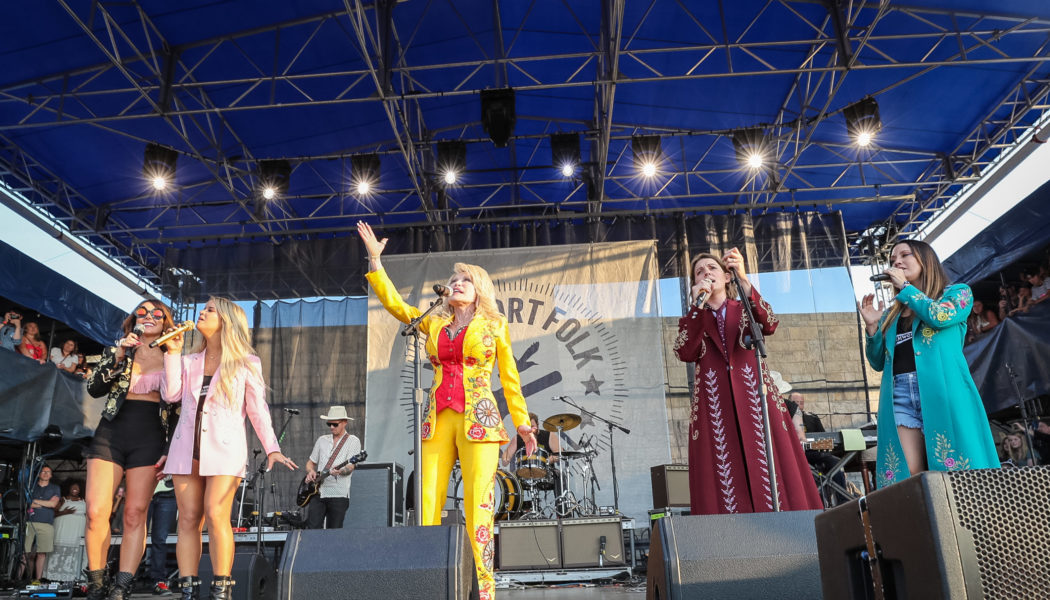

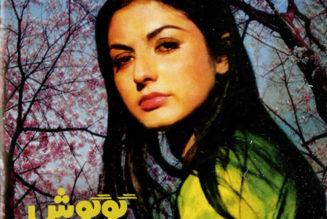
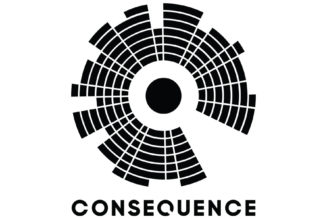
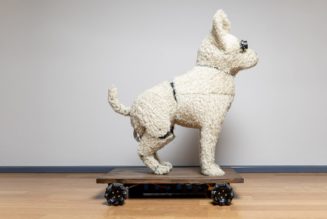
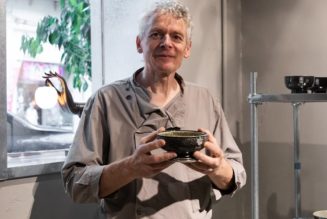
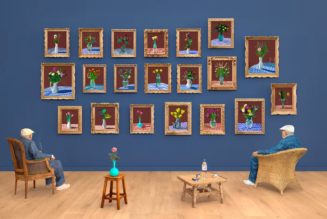

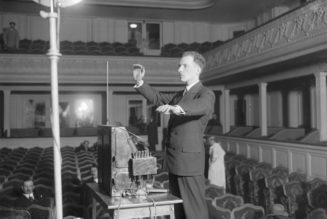
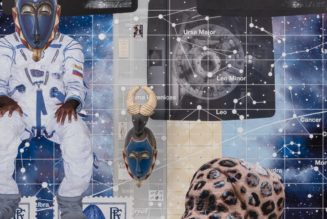
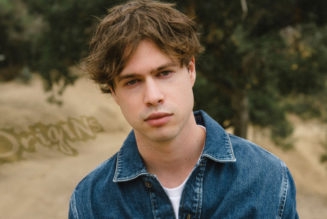
Tagged: Brandi Carlile, Dolly Parton, FEATURES, margo price, Yola